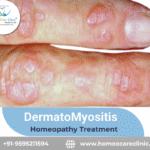What is Systemic Lupus Erythematosus?
Systemic Lupus Erythematosus (SLE) is an autoimmune chronic disorder in which the immune system mistakenly attacks normal body tissues, causing inflammation and damage to multiple body systems, including the skin, joints, kidneys, heart, lungs, and brain.
Systemic Lupus Erythematosus Causes
The cause of SLE is not yet defined but has been identified to be influenced by several factors:
- Genetic Factors: Those with a history of autoimmune diseases in their family may be more likely to be predisposed.
- Environmental Triggers: Exposure to ultraviolet radiation, certain drugs, viral infections, stress or trauma, and physical or emotional stress may trigger or exacerbate the disease.
- Hormonal Influences: The greater incidence of SLE in females implies that female hormones such as estrogen may have a role to play.
Systemic Lupus Erythematosus Symptoms
SLE affects each patient differently, but typical symptoms include:
-
- Fatigue: Ongoing tiredness that is not improved by rest.
- Joint Pain and Swelling: Frequently, with morning stiffness.
- Skin Rashes: Especially a butterfly rash on the cheeks and nose.
- Photosensitivity: Enhanced sun sensitivit,y causing reactions on the skin.
- Hair Loss: Diffuse hair thinning or patches of hair loss.
- Fever: Inexplicable low-grade fever.
- Kidney Issues: the Kidney symptoms might consist of edema in the legs and increased weight.
- Chest Pain: Especially with deep breaths, indicative of involvement in the lungs.
Systemic Lupus Erythematosus Treatment
Conventional Systemic Lupus Erythematosus Treatment
Conventional Systemic Lupus Erythematosus Medication will treat symptoms as well as discourage flare-ups:
- Nonsteroidal Anti-Inflammatory Drugs (NSAIDs): Reduce pain and decrease inflammation.
- Corticosteroids: Rapidly suppress inflammation during acute flares.
- Antimalarial Drugs: Like hydroxychloroquine, which treats fatigue, arthritis, and rashes, and prevents flares.
- Immunosuppressants: Medications that lower the immune system to decrease disease activity.
Homeopathic Systemic Lupus Erythematosus Treatment
Dr. Vaseem Choudhary and staff at Homeo Care Clinic provide a customized homeopathic treatment plan for SLE based on the patient’s distinctive symptom picture and overall constitution.
Steps in Homeopathic Treatment
- Extensive Case Analysis: Thorough examination of physical, emotional, and mental factors.
- Personalized Remedy Selection: Selecting remedies suited to the individual symptoms and constitution of the patient.
- Routine Monitoring: Repeated checks to modify treatment accordingly and track improvement.
Homeopathic Systemic Lupus Erythematosus Medecine
- Arsenicum Album
- When to Use:
- For patients experiencing burning sensations on the skin or in the chest.
- When there is restlessness and anxiety, the person feels worse at night (especially between 1–3 AM).
- Helpful during skin flares or lung involvement (pleuritis-like symptoms).
- How to Use:
- Potency: 30C or 200C, based on severity.
- Dosage: Once or twice daily in acute conditions; weekly in chronic state.
- Best taken on an empty stomach, preferably early morning or before bed.
- Benefits:
- Reduces burning pains in the skin and mucous membranes.
- Calms anxiety and nighttime restlessness.
- Improves skin eruptions and respiratory discomfort due to lupus.
- Belladonna
- When to Use:
- During sudden flare-ups of lupus with red, hot, swollen joints or skin.
- High sensitivity to light, touch, noise, or movement.
- Useful when fever and redness dominate the picture.
- How to Use:
- Potency: 30C or 200C.
- Dosage: 2–3 times a day during an acute flare (under guidance).
- It should be stopped as soon as the symptoms start to subside.
- Benefits:
- Quickly relieves inflammatory symptoms.
- Effective in managing sun-triggered lupus flares.
- Reduces local heat, redness, and sensitivity.
- Natrum Muriaticum
- When to Use:
- When lupus presents with the classic butterfly rash, skin dryness, or eczema.
- Indicated for individuals with a history of suppressed grief or emotional hurt.
- Also helpful in cases of migraine and hair fall linked with lupus.
- How to Use:
- Potency: 6X (for daily use) or 200C (for deep-acting emotional trauma).
- Dosage: 6X may be taken 2–3 times a day; 200C should be used sparingly, once a week or as advised.
- Benefits:
- Heals skin eruptions and facial rashes.
- Improves emotional balance and grief-related lupus triggers.
- Reduces dryness and improves hydration at the cellular level.
- Rhus Toxicodendron
- When to Use:
- For joint pain, stiffness, and swelling, which improves with movement but worsens with rest.
- Especially effective when symptoms worsen in damp or cold weather.
- Suitable for patients with a history of overexertion or physical strain.
- How to Use:
- Potency: 30C or 200C.
- Dosage: Once or twice daily in active symptoms; every alternate day in chronic stages.
- Benefits:
- Relieves morning stiffness and joint inflammation.
- Helps in maintaining joint flexibility.
- Suitable for long-term use in chronic SLE with joint involvement.
- Sepia
- When to Use:
- Best for female lupus patients with hormonal imbalances, irregular menses, and fatigue.
- For those experiencing mental apathy, irritability, or loss of emotional connection.
- Also useful in cases of pelvic congestion, hot flashes, or PMS-like symptoms in lupus.
- How to Use:
- Potency: 30C or 200C.
- Dosage: Weekly or bi-weekly, depending on case severity.
- Benefits:
- Balances hormonal disturbances related to lupus.
- Improves mood, energy levels, and menstrual regularity.
- Helps with chronic fatigue and emotional detachment.
Note: Homeopathic remedies are highly individualized. Consultation with a competent practitioner is mandatory prior to initiation of any new therapy.
Advantages of Homeopathy in SLE Management
- Holistic Care: Treats physical, emotional, and mental well-being.
- Personalized Treatment: Treatment is Individualized according to the patient’s distinct symptomatology.
- Minimum Side Effects: Homeopathic remedies are reputed for their safety and mild action.
- Complementary Approach: This may be applied in addition to standard treatments to promote overall well-being.
Lifestyle and Dietary Advice
- Balanced Diet: Include anti-inflammatory foods that are high in omega-3 fatty acids, antioxidants, and vitamins.
- Regular Exercise: Perform low-impact exercises such as yoga or swimming to enhance strength and flexibility.
- Stress Management: Use relaxation techniques like meditation or deep-breathing exercises.
- Sun Protection: Apply sunscreen and wear protective clothing to reduce photosensitivity reactions.
Frequently Asked Questions (FAQs)
- What is Systemic Lupus Erythematosus?
SLE is a chronic autoimmune condition in which the immune system targets healthy tissues, leading to inflammation and damage to multiple body systems.
- What are the common symptoms of SLE?
Common Systemic Lupus Erythematosus symptoms are fatigue, joint pain and swelling, skin rashes, photosensitivity, hair loss, and kidney problems.
- How is Systemic Lupus Erythematosus(SLE) treated conventionally?
Treatment includes NSAIDs, corticosteroids, antimalarial medications, and immunosuppressants to control symptoms and prevent flare-ups.
- Can homeopathy cure Systemic Lupus Erythematosus(SLE)?
While homeopathy cannot cure SLE, it may help manage symptoms and improve quality of life when used as a complementary therapy.
- Is homeopathic treatment safe for SLE patients?
Homeopathic remedies are generally considered safe with minimal side effects, but it’s crucial to consult a qualified practitioner for personalized advice.
Conclusion
Systemic Lupus Erythematosus needs to be managed with an integrated approach that incorporates traditional medicines with supportive therapy such as homeopathy. Dr. Vaseem Choudhary and his staff at Homeo Care Clinic are committed to delivering personalized care with the goal of enhancing the quality of life for those with SLE. By meeting the individual needs of each patient, they work towards delivering holistic care in the process of achieving better health.
For individual consultation and to discuss homeopathic treatment possibilities for SLE, phone Homeo Care Clinic now.
In conclusion, Homeo Care Clinic offers a holistic approach to treating the disease. The remedies mentioned above can treat the underlying causes of the condition and offer relief from the discomfort. However, it is important to consult a qualified homeopathic practitioner for the correct dosage and duration of treatment. Homeo Care Clinic provides comprehensive care for various ailments and offers customized treatment plans based on individual requirements.
To schedule an appointment or learn more about our treatment, please visit our website or give us a call +91 9595211594 . Our friendly staff will be happy to assist you. If you’re searching for the best homoeopathic doctor, we are here to help.
Follow us on Facebook, Twitter, and Instagram for valuable insights into the world of homeopathy and holistic health.
Facebook – https://www.facebook.com/homeocareclinicpune
Instagram – https://www.instagram.com/homeocareclinic_in
Website – https://www.homeocareclinic.in
Chat with a best homeopathic doctor privately
If you have any queries regarding your disease or any symptoms, Click to send a WhatsApp message. Our best homeopathy doctor will be happy to answer you.
Book an Appointment
If you want to visit our clinic, Click to book an appointment.
Online treatment
If you are a busy professional or you are living in a remote town or city, with no best homeopathic doctor near you, Clickhere to start an online homeopathic treatment with the world’s exclusive, most experienced and best homeopathic clinic, managed by Dr. Vaseem Choudhary world-renowned homeopathic doctor expert.







